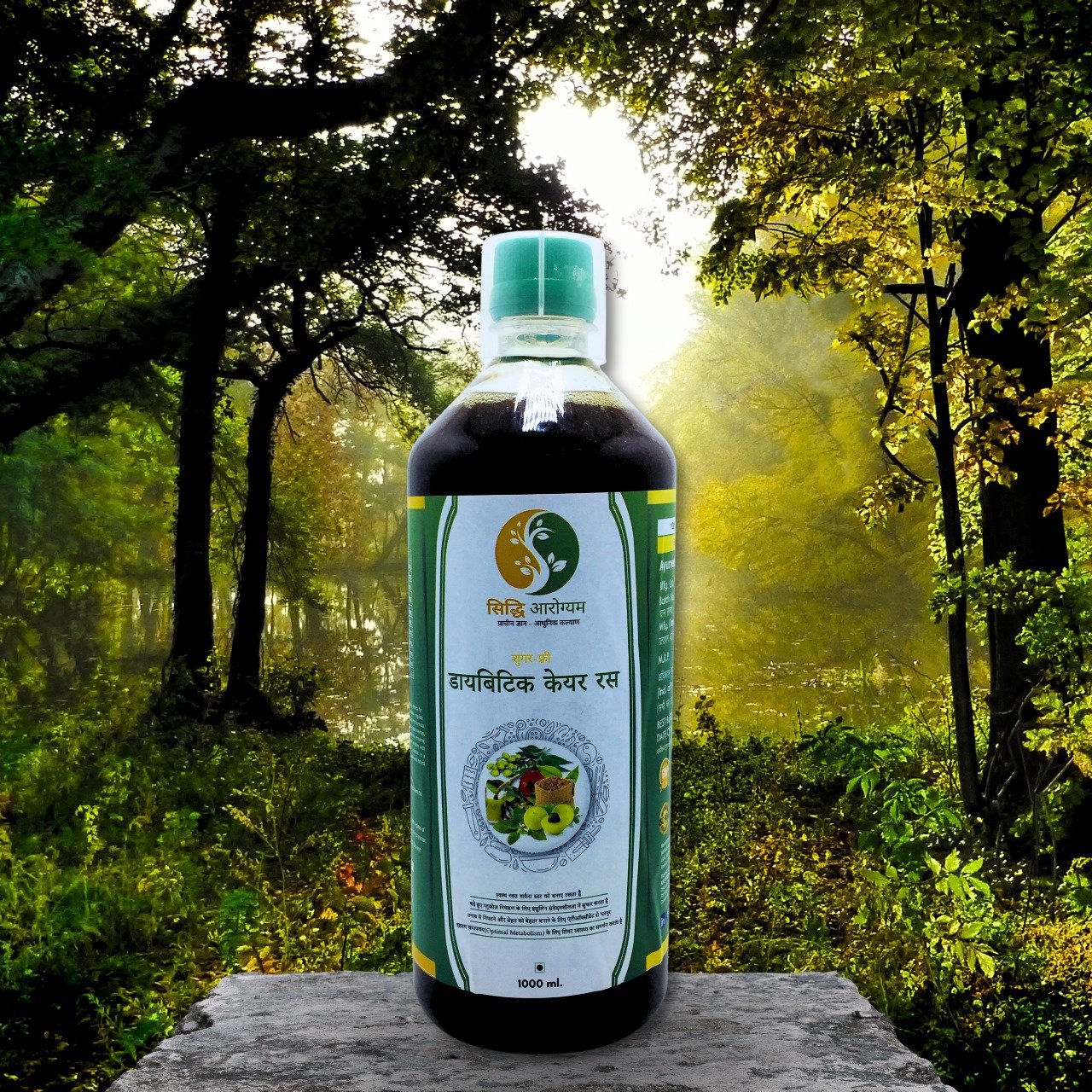Blog
The Science Behind Diabetic Care Juice: Understanding Its Impact on Your Body

Diabetes is a chronic condition that affects millions of people worldwide. Managing diabetes involves maintaining healthy blood sugar levels through a combination of diet, exercise, medication, and sometimes natural supplements. One such supplement is Diabetic Care Juice, a blend of natural ingredients traditionally used to support blood sugar regulation. In this article, we will delve into the science behind Diabetic Care Juice, exploring how its ingredients work in the body and their potential benefits for individuals managing diabetes.
The Composition of Diabetic Care Juice
Diabetic Care Juice is typically formulated with a combination of herbs and plant extracts known for their medicinal properties. These ingredients often include:
- Bitter Melon (Momordica charantia)
- Jamun (Syzygium cumini)
- Neem (Azadirachta indica)
- Amla (Phyllanthus emblica)
- Gymnema Sylvestre
- Fenugreek (Trigonella foenum-graecum)
- Aloe Vera (Aloe barbadensis)
Each of these components has unique biochemical properties that contribute to their potential effects on blood sugar levels and overall health.
How Diabetic Care Juice Ingredients Work in the Body
1. Bitter Melon
Bitter melon contains bioactive compounds such as charantin, vicine, and polypeptide-p, which have insulin-like properties. These compounds can mimic insulin’s action by facilitating glucose uptake in the cells, thereby lowering blood sugar levels. Additionally, bitter melon has been shown to modulate key enzymes involved in glucose metabolism, helping to regulate blood sugar levels more effectively.
2. Jamun
Jamun, also known as Indian blackberry, is rich in anthocyanins and other polyphenols. These compounds have antioxidant properties, which help reduce oxidative stress—a common issue in diabetes that can lead to complications. Jamun’s seeds contain jamboline, an alkaloid that may help slow down the conversion of starch into sugar, thereby reducing blood sugar spikes after meals.
3. Neem
Neem is known for its anti-inflammatory, antimicrobial, and antioxidant properties. It contains flavonoids, glycosides, and triterpenoids, which can help improve insulin sensitivity and reduce blood sugar levels. Neem also has a detoxifying effect, supporting liver health and overall metabolic function.
4. Amla
Amla, or Indian gooseberry, is an excellent source of vitamin C and other antioxidants. These antioxidants help neutralize free radicals, reducing oxidative stress and inflammation in the body. Amla also promotes better pancreatic function, enhancing insulin secretion and activity.
5. Gymnema Sylvestre
Gymnema sylvestre is often called the “sugar destroyer” because it contains gymnemic acids, which have been shown to inhibit the absorption of sugar in the intestines. These acids can also help reduce sugar cravings by blocking the taste of sweetness, making it easier for individuals to adhere to a low-sugar diet. Additionally, gymnema sylvestre may stimulate the production of insulin, further supporting blood sugar control.
6. Fenugreek
Fenugreek seeds are rich in soluble fiber, which can help slow the absorption of carbohydrates and sugars in the digestive system. This leads to a more gradual rise in blood sugar levels, preventing sharp spikes and crashes. Fenugreek also contains compounds like 4-hydroxyisoleucine, which may increase insulin secretion and improve insulin sensitivity.
7. Aloe Vera
Aloe vera is known for its soothing and healing properties. In the context of diabetes, aloe vera has been found to improve insulin sensitivity and lower blood sugar levels. It contains compounds like lectins and mannans, which may contribute to these effects. Aloe vera also supports digestive health and has anti-inflammatory properties, which can benefit individuals with diabetes.
The Mechanisms of Action
The combined effect of these ingredients in Diabetic Care Juice can be attributed to several mechanisms of action:
- Insulin Mimetic and Sensitizing Effects: Compounds in bitter melon, fenugreek, and gymnema sylvestre can mimic insulin and enhance its action, helping cells absorb glucose more effectively. This results in lower blood sugar levels and improved overall glucose metabolism.
- Inhibition of Sugar Absorption: Ingredients like gymnema sylvestre and jamun can inhibit the absorption of sugar in the intestines, leading to a reduced glycemic load after meals.
- Antioxidant and Anti-inflammatory Properties: Many of the ingredients in Diabetic Care Juice, such as amla and neem, are rich in antioxidants. These antioxidants help neutralize free radicals, reducing oxidative stress and inflammation, which are often elevated in diabetes and can lead to complications.
- Liver and Pancreatic Support: Ingredients like neem and amla support liver function and may improve pancreatic health, enhancing the body’s ability to regulate blood sugar levels.
Clinical Evidence and Research
While traditional medicine has long used these ingredients for managing diabetes, scientific research has begun to validate their efficacy. Several studies have demonstrated the blood sugar-lowering effects of bitter melon, fenugreek, and gymnema sylvestre. For example, a study published in the Journal of Ethnopharmacology found that bitter melon extract significantly reduced blood glucose levels in diabetic rats. Similarly, research has shown that fenugreek seeds can lower fasting blood glucose and improve glucose tolerance in individuals with type 2 diabetes.
However, it’s essential to note that while these studies are promising, more extensive clinical trials are needed to fully understand the long-term efficacy and safety of Diabetic Care Juice and its components. Moreover, the effectiveness of these natural ingredients can vary based on factors such as dosage, preparation method, and individual differences in metabolism.

Conclusion
Diabetic Care Juice offers a natural and holistic approach to managing blood sugar levels, leveraging the medicinal properties of various herbs and plant extracts. The ingredients in this juice work through multiple mechanisms, including mimicking insulin, inhibiting sugar absorption, and providing antioxidant protection. While Diabetic Care Juice can be a valuable addition to a comprehensive diabetes management plan, it should not replace conventional treatments or medications. As always, individuals should consult with healthcare professionals before incorporating any new supplement into their routine, especially those with existing medical conditions or on medication.
By understanding the science behind Diabetic Care Juice, individuals can make informed decisions about how to integrate this natural remedy into their diabetes management strategy, potentially improving their overall health and quality of life.
